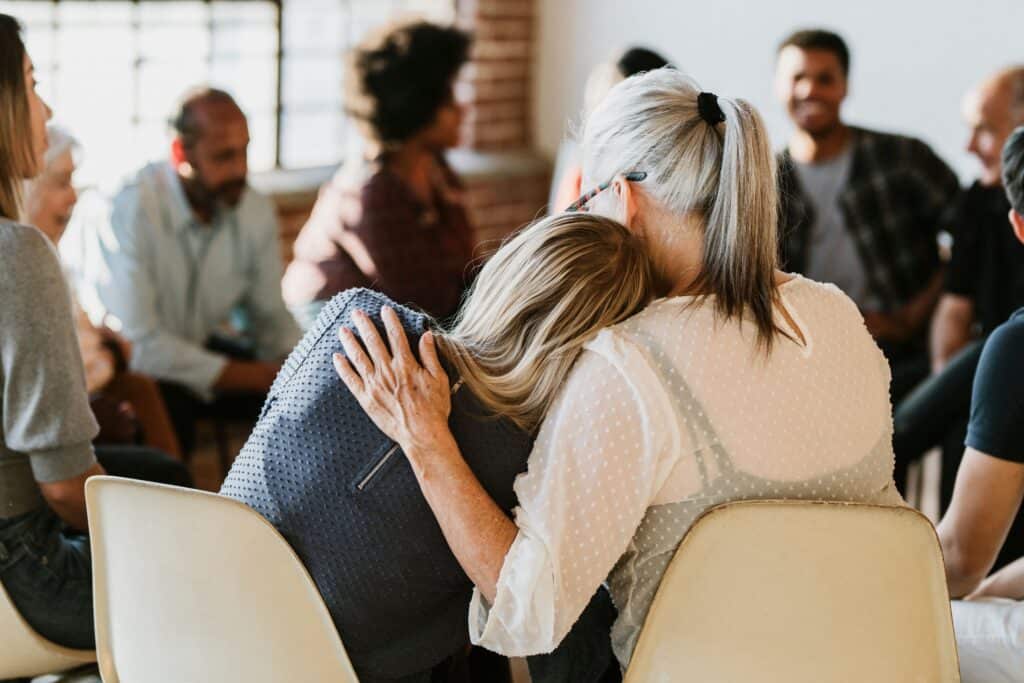Group therapy is more than just a clinical intervention; it’s a supportive community where individuals can connect, share, and grow together. Led by a trained mental health professional, group therapy brings together individuals facing similar challenges in a safe, structured environment. Group therapy in Boca Raton, FL has become a vital part of comprehensive mental health treatment, helping many navigate anxiety, depression, trauma, and more.
What is Group Therapy?
At its core, group therapy is a form of psychotherapy where a small group of individuals meets regularly under the guidance of a trained mental health professional. Typically, these groups consist of 6 to 12 participants, allowing individuals to openly share their experiences in a safe, structured environment.
Many people facing mental health challenges feel isolated. Group therapy helps dismantle this feeling by promoting a sense of community. At Solutionist Counseling, we understand the power of shared experiences and aim to create a space where participants can connect with others who understand their journey.

Why Choose Group Therapy?
Choosing group therapy can be a transformative decision. Here are some of the key benefits it offers:
Validation Through Shared Experiences
One of the most significant benefits of group therapy is the validation it provides. Participants discover that their experiences are not as unique as they thought. Hearing others share similar stories can reduce feelings of shame and isolation, creating a safe space for free expression without fear of judgment.
Gaining New Perspectives
Every group member brings a unique perspective and coping strategies to the table. This diversity allows participants to learn from one another, offering valuable insights and new coping techniques. For example, someone struggling with anxiety may find inspiration from another member’s approach to managing their symptoms.
Developing Communication Skills
Group therapy encourages open dialogue, significantly improving communication skills. Regular interactions in a supportive environment help participants practice articulating their feelings and listening actively to others, enhancing relationships both within and outside the group.
Accountability and Motivation
Being part of a group adds a layer of accountability. Members share their goals and progress, motivating each other to work toward these objectives. This mutual support enables a sense of responsibility, encouraging individuals to stay committed to their treatment plans.
Cost-Effective Support
For many, financial considerations are an important factor when seeking mental health treatment. Group therapy is often more affordable than individual sessions, making it an accessible option for those with financial constraints. Individuals can access quality mental health support through group settings, allowing more people to seek help.

Types of Group Therapy
Group therapy in Boca Raton offers various forms to meet specific needs.
- Support groups: Developed for individuals dealing with specific concerns, such as grief, trauma, or substance abuse. These groups focus on providing emotional and practical support, allowing members to share their experiences and learn from one another.
- Skills development groups: Aim to teach participants specific coping strategies or therapeutic techniques, using methods like Cognitive-behavioral Therapy (CBT) or Dialectical Behavior Therapy (DBT). These equip individuals with tools to manage their mental health challenges effectively.
- Psychoeducational groups: These sessions provide valuable information about mental health conditions and treatment options. It involves discussions on coping mechanisms, stress management, and healthy lifestyle choices.
- Specialty groups: Focused on specific populations or cases, such as first responders dealing with PTSD or individuals recovering from substance abuse. These groups target the unique challenges of each participant, providing targeted support.
Understanding the different types of group therapy is essential, but it’s equally important to recognize how these sessions are structured to maximize their effectiveness.
The Structure of Group Therapy
Engaging in group therapy typically follows several steps:
- Initial Assessment: Before joining a group, individuals undergo an initial assessment with a mental health professional. This helps determine whether group therapy is an appropriate treatment option based on the individual’s needs and goals.
- Group Orientation: Most groups begin with an orientation session, where participants learn about the group’s structure, rules, and objectives. This session is essential for establishing a safe and respectful environment, allowing everyone to feel comfortable before sharing their experiences.
- Regular Group Meetings: Groups meet regularly, usually weekly. During these meetings, participants share their thoughts, feelings, and experiences guided by the therapist. The therapist ensures that everyone has the chance to contribute while maintaining a supportive atmosphere.
- Progress Evaluation: As individuals engage in group therapy, their progress is regularly assessed. This allows participants to celebrate their growth, set new goals, and identify areas for continued focus. Regular evaluations are crucial for ensuring that each participant maximizes their experience.
Group therapy in Boca Raton provides a safe, supportive environment where participants can track their progress and growth. This structure enables meaningful connections and transformative experiences within the group.

Overcoming Barriers to Group Therapy
Many individuals may hesitate to join a group due to fears of judgment or concerns that their problems are too unique. It’s necessary to understand that group therapy is a non-judgmental space, where each participant’s experiences are valid and sharing promotes mutual understanding and acceptance.
Additionally, some may worry about confidentiality. It’s crucial to discuss confidentiality guidelines with the therapist leading the group to ensure that participants feel safe to share their stories without fear of disclosure. Knowing that what is shared in the group stays within the group can encourage openness and honesty.
The Role of the Therapist
In group therapy, the therapist plays an important role in the success of the process. They facilitate discussions, encourage participation, and ensure a safe environment for sharing. The therapist also manages group dynamics, addressing conflicts or discomfort as they arise.
A key responsibility of the therapist is to create a safe and respectful environment. This involves establishing ground rules for communication, ensuring that everyone has a chance to speak, and managing any disruptive behavior. By nurturing trust and respect, the therapist empowers participants to engage fully in the process.
The Impact of Group Therapy on Mental Health
Research shows that group therapy effectively addresses various mental health problems, leading to improvements in mood, reduced anxiety, and enhanced well-being. Participants experience lasting benefits, such as improved communication skills, better coping strategies, and a stronger support network, all contributing to long-term mental health stability.
Explore a Variety of Therapy Services with Group Support Options
Solutionist Counseling offers a broad range of therapy services that can be reinforced in a group setting:
- Individual counseling: One-on-one session focusing on personal growth that can be reinforced in a group setting.
- Substance abuse counseling: Developed to aid in recovery, offering encouragement and understanding among peers.
- Trauma & grief therapy: These groups provide shared space for those navigating loss or trauma, fostering mutual support and resilience.
- Family therapy: Strengthens family dynamics with added group support for shared experiences.
- Counseling for first responders: Create a safe environment to process shared experiences and enhance well-being.
- PTSD therapy: Groups focus on supporting individuals coping with PTSD, allowing for shared healing and understanding.
- Corporate wellness: Sessions aim to improve workplace mental health through group support and shared strategies for managing stress and promoting well-being.
- Marriage counseling: Couples benefit from additional group discussions for shared insights.
- Cognitive-Behavioral Therapy (CBT) & Dialectical Behavior Therapy (DBT): Evidence-based approaches adaptable to group therapy for skill-building.
- EMDR therapy: Trauma-focused; group settings may amplify the healing process.
Discover the Transformative Power of Group Therapy in Boca Raton, FL
If you’re considering group therapy in Boca Raton, Solutionist Counseling Services offers a range of compassionate and professional options developed to meet diverse needs. Our approach emphasizes understanding and connection, ensuring participants feel supported every step of their journey.
Contact us today to explore the group therapy options to help you move toward a brighter future. You don’t have to face your challenges alone—together, we can work toward healing and growth.


